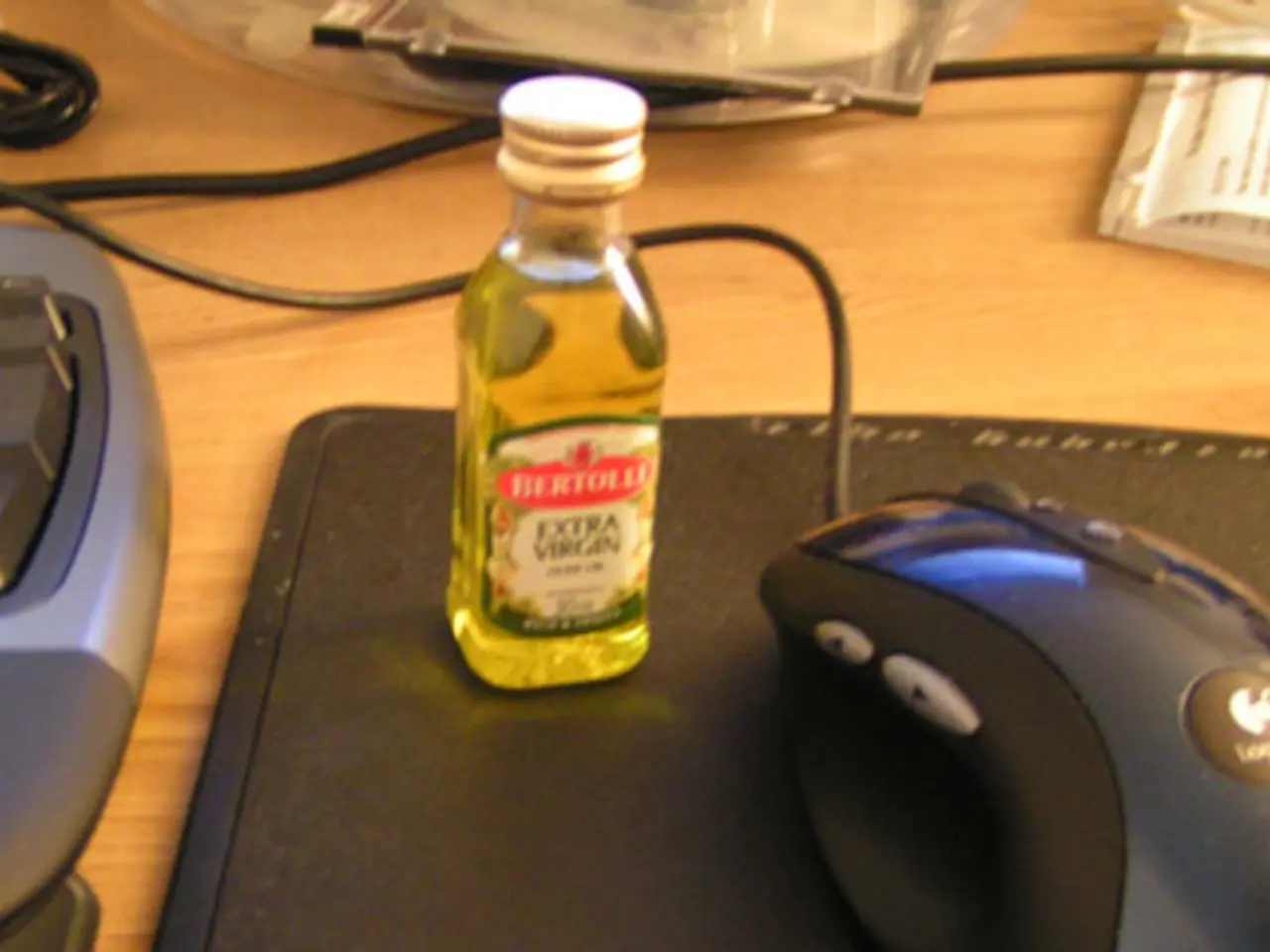Enhancing Creativity Sessions with Nootropics: Prolonging Idea Generation
Boosting Creativity with Nootropics: A New Approach to Brainstorming
In the fast-paced world of innovation, maintaining a creative and focused mindset is crucial for success. More and more, individuals are turning to nootropics – a class of cognitive enhancers – to support their creative flow during brainstorming sessions.
Advertising copywriters, game designers, and startup founders are among those who have embraced nootropics as part of their creative toolkit. By taking a combination of supplements such as caffeine, L-theanine, Citicoline, Lion's Mane, Rhodiola Rosea, and Phenylpiracetam, they aim to extend the window of inspiration, reduce creative fatigue, and help their brains explore new connections without stalling.
The routine typically involves taking 100-150mg caffeine and 200mg L-theanine 30-60 minutes before a session. N-Acetyl L-Tyrosine (NALT) may also be included to enhance neurotransmitter function, supporting motivation, focus, and cognitive flexibility during creative tasks. During the pre-session, 250mg Citicoline and 500-1000mg Lion's Mane are taken to boost brain energy and membrane health, and support neuroplasticity and stress regulation.
Supporting the creative engine with the right cognitive environment, supplements, structure, and intention can help shift brainstorming sessions from short bursts to sustained innovation. Setting time boundaries, creating psychological safety, alternating solo and group ideation, hydrating and fueling, and pairing supplements with creative best practices can optimize brainstorming efforts.
If the brainstorming session exceeds 2 hours, Rhodiola Rosea (200mg) can be taken for support. An optional small dose of Phenylpiracetam (50-100mg) can be taken during the session if needed.
After the session, Magnesium Glycinate (200-400mg) can be taken for recovery and relaxation, and Ashwagandha (500mg) can be taken to calm residual stimulation and regulate cortisol.
Nootropics enhance creative flow during brainstorming by optimizing the brain’s biochemical environment and functional networks, enabling clearer thinking, better focus, and a more sustained creative “flow” state. Key mechanisms include enhancing neurotransmitter function, boosting brain energy and membrane health, supporting neuroplasticity and stress regulation, and facilitating divergent and convergent thinking.
When using nootropics, it's important to start low and track effects, avoid overreliance, and be transparent in team settings. As with any supplement, it's always advisable to consult a healthcare professional before starting a nootropic regimen.
[1] Shulgin, A. T., & Shulgin, A. (2013). TiHKAL: The Continuation. Transform Press.
[2] Myers, J. (2016). Smart Drugs & Nutrients: How Biohacking Can Boost Your Brain Power. DK.
[3] Newport, A. (2016). Deep Work: Rules for Focused Success in a Distracted World. Grand Central Publishing.
[4] Bacopa Monnieri: An Overview of Its Traditional Uses, Pharmacology, and Clinical Benefits. Evidence-Based Complementary and Alternative Medicine, 2014, 2014.
[5] Green, R., & Borenstein, S. (2015). The Oxford Handbook of Medical Psychopharmacology. Oxford University Press.
- In the realm of innovation, where creativity and focus are key, individuals increasingly opt for nootropics to fuel their brainstorming sessions.
- Advertising copywriters, game designers, and startup founders are among the innovators who utilize nootropics as creative aids.
- These creative minds combine supplements like caffeine, L-theanine, Citicoline, Lion's Mane, Rhodiola Rosea, and Phenylpiracetam to stimulate their cognitive function.
- A common routine involves taking caffeine (100-150mg) and L-theanine (200mg) before a session to sustain inspiration and reduce fatigue.
- N-Acetyl L-Tyrosine (NALT) may be added to boost neurotransmitter function, while Citicoline (250mg) and Lion's Mane (500-1000mg) are taken for brain energy, membrane health, and neuroplasticity support.
- Divergent and convergent thinking are facilitated, enabling the brain to explore new connections without stalling during brainstorming.
- Setting boundaries, ensuring psychological safety, alternating solo and group ideation, proper hydration, nutrition, and following creative best practices further optimize brainstorming efforts.
- For longer sessions, Rhodiola Rosea (200mg) can offer support, and Phenylpiracetam (50-100mg) may be taken during the session as needed.
- After the session, Magnesium Glycinate (200-400mg) aids in recovery and relaxation, and Ashwagandha (500mg) calms residual stimulation and regulates cortisol.
- By modifying the brain's biochemical environment and functional networks, nootropics enable clearer thinking, better focus, and a more sustained creative “flow” state.
- When using nootropics, it's essential to start low, track their effects, avoid overreliance, and maintain transparency in team settings.
- Before starting a nootropic regimen, it's always advisable to consult a healthcare professional for guidance, and reference scientific texts like TiHKAL, Smart Drugs & Nutrients, Deep Work, and medical handbooks such as the Oxford Handbook of Medical Psychopharmacology and the literature on Bacopa Monnieri for more information on nootropics, brain health, and cognitive enhancement.




